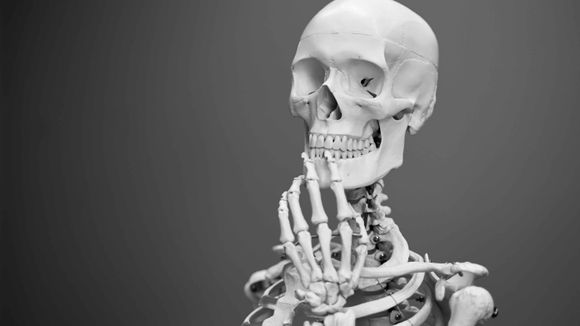The role of vitamin D for our health
Vitamin D is an essential nutrient for the body that plays a role in bone growth, remodeling and maintaining strong immune function. In addition to controlling calcium and phosphate levels in the body, vitamin D is believed to help regulate various functions in the central nervous system.
In fact, earlier animal studies have suggested that it may even contribute to the control of chemical balance in the brain, which may somewhat explain the link between vitamin D and mental health.
Vitamin D deficiency is common and can contribute to the development of osteopenia, osteoporosis and the risk of falling in the elderly. [ref. 1] Vitamin D deficiency leads in the first place to abnormalities in the metabolism of calcium, phosphorus and bones. In particular, it causes a decrease in the effectiveness of intestinal calcium and the absorption of phosphorus from dietary sources of calcium and phosphorus, which leads to an increase in levels of parathyroid hormones. [ref. 2] With secondary hyperparathyroidism, serum calcium can remain within normal limits if the body extracts calcium from the skeleton and loses more phosphorus than the kidneys. In this situation, the risk of osteopenia and osteoporosis is even greater.
Vitamin deficiency is also seen as a factor in an increased risk of developing depression and impaired cognitive function. According to the neurotrophic hypothesis, immunohistochemical studies have found vitamin D receptors (VDR) in the central nervous system, providing a serious indication that vitamin D plays a significant role in brain functions.
VDR are found throughout the brain, including the hippocampus, which plays a role in controlling memory and emotional function. Since the hippocampus is vital for the causes of depression, the discovery of VDR in it directed many researchers to analyze the effects of vitamin D on the shape and function of the hippocampus in animals. Numerous studies using in vitro cultivation of hippocampal cells and in vivo experiments on the brains of adult mice have revealed that vitamin D deficiency can change the shape or function of the development of the hippocampus. [Ref. 3]
A study of 2,716 people from the Netherlands found that those with vitamin D deficiency (serum concentration 30 nmol/L) had reduced brain tissue and hippocampus volume, which is also confirmed by MRI. [Ref. 4]

What the meta-analysis reveals about the link between vitamin D and depression
A new meta-analysis from July 2022 covered a total of 53,235 participants from 41 studies, including those with or without depression; people taking vitamin D supplements and people taking placebo, as well as individuals with different physical conditions. [Ref. 5]
Although the doses used vary, the average amount of vitamin D participants take is 50-100 micrograms per day. In participants with depression, vitamin D supplements proved more effective than placebo in alleviating symptoms of depression.
Vitamin D supplements also appear to be most effective in shorter periods of exacerbation of the condition (under 12 weeks), the researchers report. In healthy individuals, however, placebo had a slightly greater impact on symptoms of depression.

The results showed that supplementation with vitamin D had a beneficial effect in both individuals with major depressive disorder and those with milder, clinically significant depressive symptoms.
As depression is now recognised as the leading cause of disability worldwide - affecting more than 280 million people each year - and antidepressants are not an effective tool for everyone, more treatment options need to be urgently explored.









